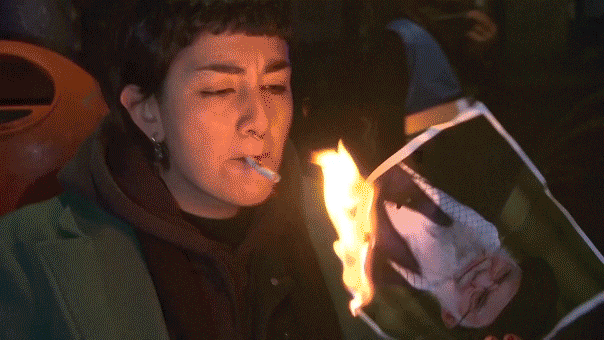PARIS – Emerging from her crushing defeat in France's presidential contest, far-right leader Marine Le Pen said Thursday she will run for a parliamentary seat in June elections and that her National Front party has "an essential role" in a new political landscape.
Le Pen will run for a seat in a district in her northern stronghold of Henin-Beaumont, a hardscrabble former mining region where she lost a similar bid in 2012. A new failure could jinx her bid to unite the National Front and to make it France's leading opposition party.
"I cannot imagine not being at the head of my troops in a battle I consider fundamental," Le Pen said in an interview on the TF1 television station, her first public appearance since her May 7 loss to centrist Emmanuel Macron.
Le Pen announced her candidacy while facing forces of division that could frustrate her new goals. Her popular niece is leaving politics, her disruptive father is back in the ring and her party is in disarray.
At the same time, Macron has upset the political equation, drawing from the left and right to win the presidency and to create his government. The new president now is looking across the political spectrum to obtain a parliamentary majority to support his agenda.
"We are in reality the only opposition movement," Le Pen said.
"We will have an essential role to play (and) a role in the recomposing of political life," she said, reiterating her contention that the left-right divide has been replaced by "globalists, Europeanists and nationalists" like herself.
Le Pen is counting on the 10.6 million votes she received as a presidential candidate to propel her anti-immigration party into parliament in the June 11 and June 18 elections.
The party also hopes to pick up votes from "electoral orphans" unsatisfied with Macron and feeling betrayed by the mainstream right, National Front Secretary-General Nicolas Bay said this week.
The National Front plans to field candidates for each of France's 577 electoral districts, hoping to block Macron's movement from obtaining a majority of seats and to secure a strong bloc of its own to counter his new government.
Le Pen dismissed the notion that there were links between her loss and a series of events widely seen as potentially weakening the National Front.
The party recently lost a rising star who served as a unifier on its conservative southern flank. One of the National Front's two current lawmakers — Le Pen's niece, Marion Marechal-Le Pen — announced last week that she was leaving politics, at least temporarily.
Enter Jean-Marie Le Pen, who likened his granddaughter's exit from politics to a "desertion."
The elder Le Pen, who was expelled from the party he co-founded because of his penchant for making anti-Semitic comments, is backing up to 200 parliamentary candidates through an ultra-conservative alliance, the Union of Patriots.
Some of the five parties represented in the alliance are headed by former National Front militants who, like Jean-Marie Le Pen, were expelled by his daughter in her bid to scrub up the party's image for the presidential contest.
His own Jeanne Committees will present some 35 of the 200 candidates. The decision smacks of revenge, but the elder Le Pen's aide denied that was the case.
"This is not meant to cause trouble for the National Front. It is to defend the values that the National Front no longer defends," the aide, Lorrain de Saint Affrique, said.
The risk that other far-right parties would challenge the National Front "has existed since the National Front decided to exclude Jean-Marie Le Pen," De Saint Affrique said. "They should have thought of that then."
The competition from all but obscure parties is not a substantial threat to Le Pen, but mirrors frustrations roiling the National Front, some of which became public following Le Pen's defeat.
More menacing, her top lieutenant, Florian Philippot suggested after Le Pen's loss to Macron that he would leave the party if it decided to do away with the goal of leaving the euro currency — a divisive proposal but at the top of Le Pen's presidential platform.
"I'm not there to keep a post at any price and defend the reverse of my deep convictions," he said last week on RMC radio.
Le Pen conceded Thursday that the subject of the euro "considerably worried the French" and would be discussed after the parliamentary elections. "We will have to take this into account, reflect," she said.
She welcomed Philippot's launching this week of an association, called The Patriots, which could be seen as the budding of a potential rival, like the movement Macron started 13 months ago, En Marche (On the Move).
"The more ideas the better," she said.








































